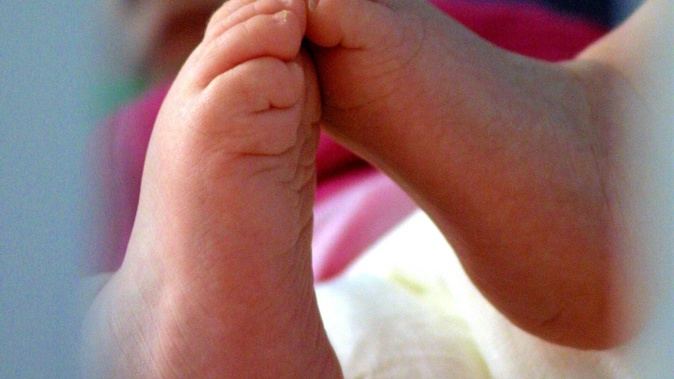
Police officers undermined the investigation into a newborn baby’s death by arresting the grieving father, a coroner says.
The “concerning” response by frontline police discouraged the father from cooperating with the subsequent inquiry, leading to a “lost opportunity” to find out why the baby died and help prevent further deaths in similar circumstances.
Coroner Tania Tetitaha urged the Police Minister and the Police Commissioner to develop a new approach for frontline staff responding to sudden unexpected deaths in infancy (SUDI). She also suggested that the Independent Police Conduct Authority (IPCA) review the arrest of the father.
In response, police said they were satisfied with their policies on responding to sudden deaths, but were changing the way they reported findings to the coroner.
In June 2019, the 6-week-old baby died in his Auckland home.
The baby, who was of Cook Island Māori descent, was found to have a cardiac condition after his birth at Middlemore Hospital but after being discharged he had been eating and sleeping well.
On the night the infant died, the coroner’s report said he was placed in his cot by his father at 10pm. When his mother checked on him at 3am, he was purple in the face and unresponsive. His father and emergency services attempted to revive him but he was later declared dead.
At that point, the father “became upset and punched holes in the wall”, the coroner’s report said. Police came to the scene and he was arrested for aggressive behaviour.
Coroner Tania Tetitaha has urged the Police Minister and Police Commissioner to change the way frontline officers respond to sudden infant deaths. She made the recommendation after a case in which officers arrested a grieving father. Photo / Tania Whyte
Tetitaha said in her report that she felt the need to comment on the approach of frontline police because the arrest had an impact on her investigation into the cause and circumstances of the baby’s death.
“The father’s anger at the death was understandable. His subsequent arrest including the stated grounds was concerning.”
She said de-escalation techniques could have been used to prevent self-harm, and his removal from the scene was sufficient to calm the situation.
To determine how the baby died, investigators needed information about his sleeping position in the cot. This required speaking to the father, who had put the baby down in the evening and had been responsible for checking on him.
Before the baby’s death was confirmed, the parents had been cooperative, the coroner said.
“Following the father’s arrest, it is unsurprising the parents have become uncooperative with any investigation into this death. This was a lost opportunity to identify possible reasons for the cause of [the baby’s] death from the circumstances known to his parents.”
Tetitaha concluded that there was insufficient evidence to confirm whether the baby’s sleeping position contributed to his death. A pathologist said it was unlikely that the baby’s underlying cardiac condition was a factor in his death.
The coroner said the case could indicate the need for a specific protocol or training for frontline officers responding to the sudden death of an infant.
This recommendation was forwarded to the Police Minister and the Police Commissioner for comment before the coroner’s decision was released, but they did not respond.
In an updated decision published in April, Tetitaha urged them to introduce a new protocol for SUDI cases. This could include a senior police officer being part of the first response team to an SUDI; an iwi/Pasifika liaison to support families; a detailed history from all witnesses to understand the cause of death; and inclusion of SUDI material in police training.
Police Minister Ginny Andersen’s office referred questions to police.
“Police understand the devastating effect the death of a child has on a whānau,” a police spokesperson said.
“As a result, police have reviewed their Police Sudden Death Policy and are satisfied it provides appropriate guidance to staff on initial procedures when attending sudden deaths including sudden unexplained infant deaths.
“Police are also reviewing and updating their reporting forms to the Coroner, which will provide further guidance for attending staff when completing their investigation.
“Police endeavour to respond in a culturally sensitive manner.”
The IPCA said its jurisdiction was limited to receiving complaints from police. It had referred the Coroner’s recommendation to police, and had not had a response.
The baby’s family could not be reached for comment.
Tetitaha said a more sensitive approach by police could have elicited important information about the cause of death and helped prevent similar deaths in future among Pacific Island families. This was significant given Pacific and Māori families have relatively high rates of SUDI which the health sector is desperately trying to address.
It was not the first time a family of Pacific Island descent had been distressed by the police response after a baby’s sudden death.
Tetitaha cited a 2018 investigation in which parents whose baby had died said they were separated by police, made to feel like criminals, and were unable to hold their baby because it was left on the ground until officers could take photographs.
Of the 38 SUDI cases in 2018 (the most recent data available), 21 were Māori babies and seven were Pasifika.
This amounted to a rate of 0.6 deaths per 1000 live births, down only slightly on the previous year. The SUDI rate has plateaued despite national prevention campaigns which include provision of safe sleeping devices and safe sleeping messaging for parents of newborns.
Academics say the over-representation of Māori and Pacific families in SUDI statistics is because of higher rates of smoking during pregnancy and cultural customs of bed-sharing.
Isaac Davison is an Auckland-based reporter who covers health issues. He joined the Herald in 2008 and has previously covered the environment, politics, and social issues.
Take your Radio, Podcasts and Music with you

/cloudfront-ap-southeast-2.images.arcpublishing.com/nzme/TNB3YOJK7BEMHPMDX4EMN57LUE.JPG)








